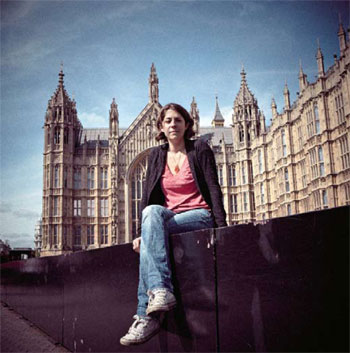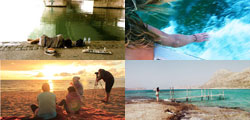 If you read the ‘Take Action’ story in the last issue of Cooler and wondered what Josie Cohen meant when she mentioned the danger of biofuels, here’s your clue. And a story that began with a hint of foul play in rural Tanzania and went to become a big deal with The Guardian.
If you read the ‘Take Action’ story in the last issue of Cooler and wondered what Josie Cohen meant when she mentioned the danger of biofuels, here’s your clue. And a story that began with a hint of foul play in rural Tanzania and went to become a big deal with The Guardian.
“It was early 2010 when I first started hearing murmurs about UK company Sun Biofuels from Elias, my ActionAid colleague in Tanzania. Villagers in Kisarawe, an area just 70km from Tanzania’s capital Dar es Salaam, had approached ActionAid after Sun Biofuels had grabbed more than 8,000 hectares of the their land to establish a biofuel plantation. That’s about 11,000 football pitches….
As Sun Biofuels was a UK company, I knew that campaigners here in the UK could potentially influence them so, in July 2010, I decided to travel to Tanzania to see situation on the ground first-hand.
As I sat in village meetings, listening to people talk about the company’s broken promises, it quickly became clear just how angry and betrayed they felt. They said that Sun Biofuels had come to Kisarawe in 2006 and, in exchange for the communities giving up their land, had promised they would pay full and fair compensation and build clinics, wells and schools. The villagers had unsurprisingly jumped at what seemed like an amazing opportunity to develop their area and improve their lives.
But by July 2010, the communities had already been waiting for five years for Sun Biofuels’ promises to materialise and the expected clinics, wells and schools were nowhere to be seen. A handful of individual villagers had received some compensation for their land but, without exception, told me that the amount they received was far too low. As for the huge amount of communal village land taken by Sun Biofuels, the communities hadn’t received a penny.
The thing that I found the most distressing on this first visit to Kisarawe was how the plantation had made the daily lives of the villagers so much harder. Having lost the land they relied upon for their livelihood, many parents could no longer afford to send their children to school or buy medicine. Their closest water sources had been engulfed in the plantation and 13-year old Mariam Shabani told me how she now had to spend up to four hours a day collecting water, meaning that she has ‘less time to study and less time to play.’
I returned from that first trip inspired to do whatever it took to help the people of Kisarawe get justice. Once back in ActionAid’s London office, I began the long process of gathering information for the investigation and designing the best strategy for the campaign. Meanwhile, back in Tanzania, Elias and other ActionAid staff carried on working with the communities, helping them to form a taskforce so they could begin to claim their rights.
I visited the communities again in July of this year, this time with a film camera and photographer to record the villagers’ testimonies. But when I got back to London I heard some worrying news; Sun Biofuels had sacked 650 of their 700 local workers. After a bit of digging work, I discovered that they had gone into administration and had already been sold to a new company.
This news was potentially disastrous for the villagers who had been petitioning the old owners since 2006 and would now have to start again from scratch.
Despite this change in circumstances, Damian Carrington, a journalist from The Guardian, was interested in the story and I took him out to Kisarawe last month on a whirlwind trip talking to villagers, meeting company representatives and politicians, and following the trail of the new owners around Dar es salaam. The Observer published their expose on Sunday 30th October.
What next? So now the campaign moves on; engaging with the new owners, continuing to work with the villagers in Tanzania, lobbying the UK and Tanzanian governments and, if necessary, getting campaigners onboard here in the UK to urge the new owners of Sun Biofuels to make good on the promises made by their predecessors.
You can stand alongside the people of Kisarawe and stop this happening to other communities by signing the petition against biofuels.”
To find out more about the campaign or get involved yourself, head over to actionaid.org





